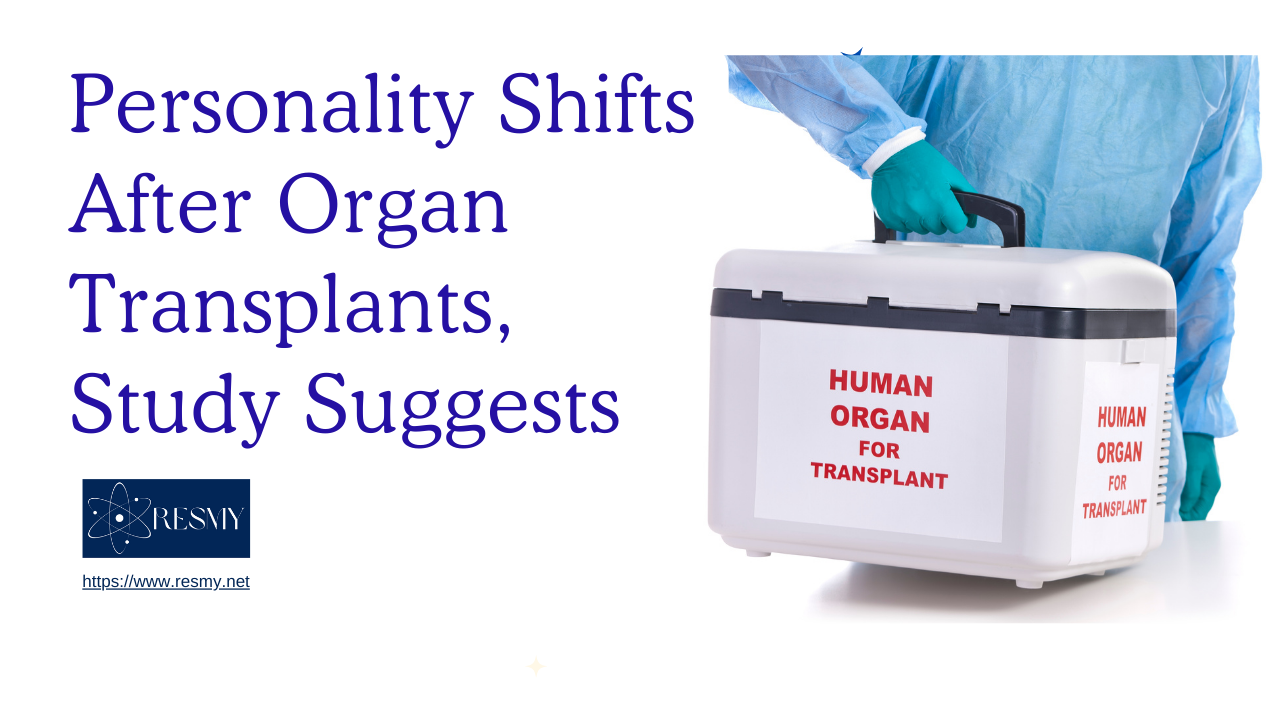A Longstanding Intrigue: Personality and Heart Transplants
For decades, the topic of heart transplants has been intertwined with a fascinating, and sometimes unsettling, concept: the idea that recipients might inherit their donor’s personality alongside the vital organ. This notion has captured the public imagination, fueling stories and speculation. However, scientific evidence to support this claim has remained scarce. A new study published in Transplantology sheds light on this topic, suggesting that personality changes after organ transplants may be a more widespread phenomenon, extending beyond just hearts.
Investigating the Phenomenon: The Study’s Design
The research set out to answer two key questions:
- Do personality changes occur following organ transplantation?
- Are these changes unique to heart transplant recipients?
The study employed a cross-sectional design, meaning researchers assessed participants at a single point in time. They recruited 47 individuals who had undergone organ transplants – 23 with heart transplants and 24 with transplants of other organs. All participants completed a comprehensive online survey designed to capture personality traits.
Striking Results: Prevalence of Personality Changes
The results were striking. An overwhelming 89% of all transplant recipients reported experiencing personality changes after surgery. This finding significantly challenges the long-held belief that personality shifts are specific to heart transplants. Interestingly, the study found no significant difference in the overall prevalence of personality changes between the two groups (heart vs. other organ recipients).
A Key Distinction: Changes in Physical Self-Perception
However, the researchers did identify one key distinction. Changes in physical self-perception emerged as the only statistically significant difference between heart and other organ recipients. This suggests that heart transplant recipients may experience a heightened awareness or alteration in how they view their own bodies.
The study acknowledges that the sample size might have limited the detection of other potential differences. While both groups reported similar types of personality changes, these variations may not have reached statistical significance due to the relatively small number of participants.
Beyond the Findings: Exploring the Why
This study emphasizes the importance of these findings: Challenges the traditional perspective that personality changes are unique to heart transplants; the high prevalence of reported changes across both groups suggests that this phenomenon might be a general consequence of organ transplantation, regardless of the specific organ involved.
While the study does not delve into the underlying mechanisms causing these personality shifts, it opens doors for further investigation. Several theories have been proposed:
- The Psychological Impact of a Second Chance: The experience of facing near-death and then receiving a life-saving organ can be transformative. This can lead to changes in values, priorities, and even personality traits.
- Cellular Memory: A Complex Possibility: This theory explores the potential influence of cellular memory. This complex concept suggests that cells might retain some information about an individual’s life experiences. While the scientific understanding of cellular memory remains in its early stages, some researchers hypothesize that it might play a role in transmitting subtle aspects of a donor’s personality to the recipient.
Implications and Future Directions
The study’s findings have significant implications for both the medical community and transplant patients:
- Enhanced Support for Patients: Understanding the potential for personality changes can help healthcare professionals provide better support and address any anxieties or concerns patients might have after surgery. Open communication between patients and doctors can be crucial in navigating these potential shifts in self-perception and personality.
- Empowering Patients Through Knowledge: For transplant recipients themselves, this research offers valuable knowledge about a phenomenon that may have previously seemed mysterious or even frightening. Knowing that personality changes are a relatively common occurrence after organ transplantation, regardless of the organ, can provide a sense of normalcy and even empower patients to embrace their personal growth journeys.
The study represents a significant step forward in our understanding of the complex relationship between organ transplantation and personality. While further research is needed to elucidate the exact causes of these changes, the initial findings suggest a broader impact on personality than previously suspected. By acknowledging and exploring this phenomenon, the medical community can better support transplant patients as they embark on a new chapter in their lives, one that may extend beyond just a physical transformation.
Other Topics: Medicine and Health Science, Natural Science, Agricultural Science, Engineering & Technology, Social Sciences & Humanities

